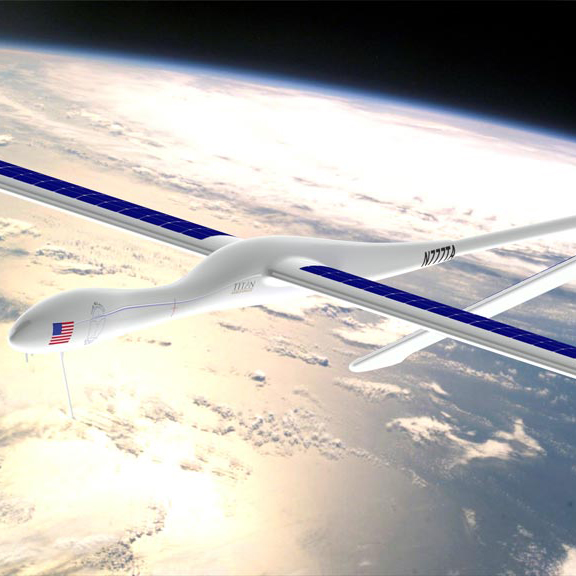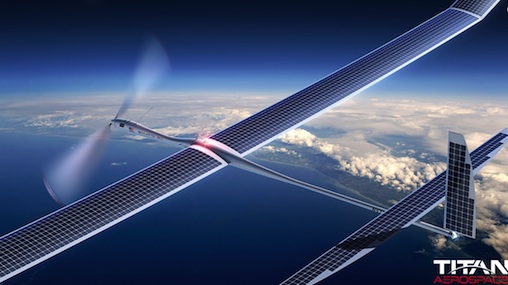
Google entered the drone wars on Monday with its acquisition of New Mexico-based drone maker Titan Aerospace. Google did not disclose the details of the purchase, but Facebook was previously interested in buying Titan for a reported $60 million.
Titan Aerospace is in the business of creating near-orbital, solar-powered drones. These jet-sized drones can potentially remain aloft for up to five years via solar-powered technology, and could play an integral role in many of Google’s projects. What exactly Google will do with the drone technology remains to be seen, but the possibilities are endless.
Google will likely leverage the drone technology to push its efforts in Project Loon. Two-thirds of the world currently does not have access to the Internet, and Project Loon aspires to help fill these coverage gaps using large blimp-like balloons. Titan’s solar-powered drones would have the advantage of greatly outlasting the 100-day flight of the balloons. The drones would also be easier to handle and more resilient to the effects of the environment than the large balloons. In addition, Titan claims that its drones can potentially be capable of transmitting data at up to 1 gigabit per second. Facebook is also interested in providing Internet for the underserved. The two giants appear to be at an arms race to provide Internet coverage to the millions of potential customers, which would open the doors to selling their many services to these customers.
Titan Aerospace could also enhance Google’s satellite imaging efforts, such as Google Maps and Google Earth. With Titan’s technology, Google may be able to collect real-time images of the earth at high resolutions. Also in line with these efforts is Google’s reported interest in Mountain View-based Skybox Imaging, which develops satellites that are smaller and cheaper than traditional satellites. This would also allow Google to provide more up-to-date satellite images through the potentially larger network of satellites.
In addition to these two main efforts, Google is optimistic about the possibilities with Titan’s drone technology. Google has stated that Titan’s technology could help in other areas including disaster relief and assessing environmental damage.
Google has been making headlines across the board recently, with its drone acquisition and the opening of its Google Glass Explorer program, and they aren’t showing any signs of slowing. What do you think Google’s next big move will be?

